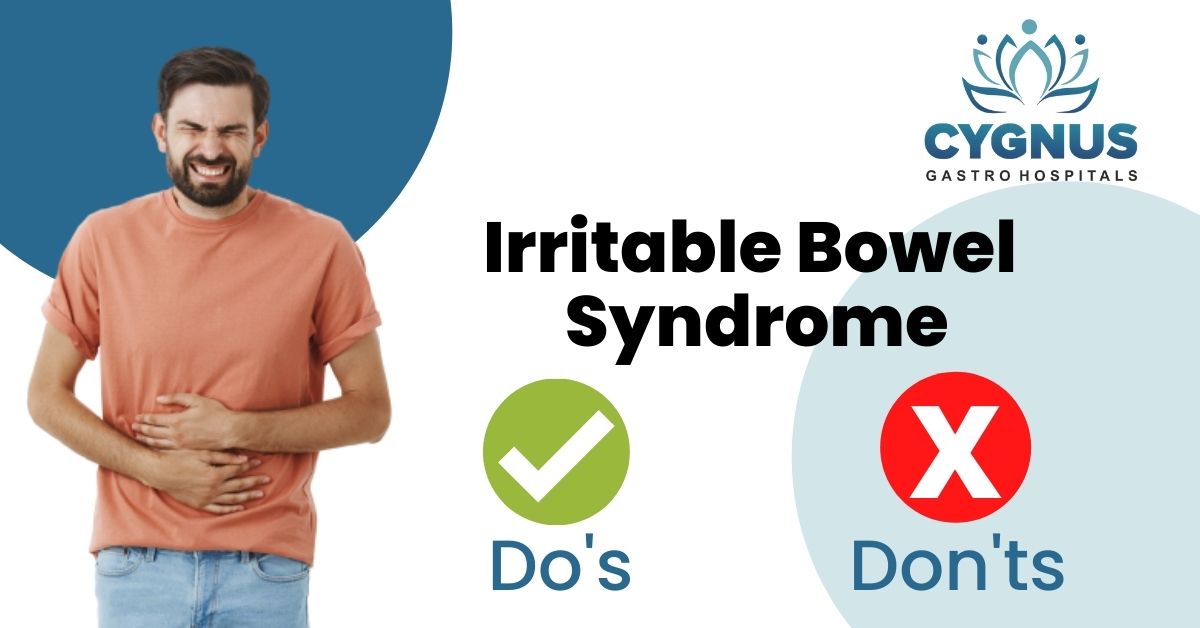
What is Irritable Bowel Syndrome?
Have you ever felt discomfort in your gut? It can be the most common intestine-related syndrome affecting millions of people worldwide, that is, Irritable Bowel Syndrome (IBS). It is a very diverse disorder with a very wide range of symptoms like cramping, loose motions, constipation, bloating, abdominal pain and irritation, etc. It is a type of functional Gastrointestinal Disorder. It rarely has severe symptoms and the usual symptoms can easily be controlled with the help of proper food guidance and counselling.
Why does it happen?
It is a very common disorder. As it has such diverse symptoms, pinpointing the exact cause of IBS is very difficult. Each organ has a specific task. So any abnormality in the muscles, nerves, tissues, contractions, etc. can trigger IBS-related symptoms. For example, in some people, it happens because of abnormally strong or abnormally weak intestinal contractions. Some people suffer because of the abnormalities in the nerves related to the digestive system. It also occurs after severe diarrhoea. Any change in the gut flora can also trigger such symptoms. Hence, one can easily understand that pinpointing the exact cause of IBS is a task of great specialization and experience.
What are the possible triggers of IBS symptoms?
Different people have different IBS-related triggers. Some people experience it after emotional stress or anxiety while some people face such symptoms after long medication or eating certain types of foods. Well, it is necessary for the patient to consult a Gastroenterologist to find the exact triggers of his/her disorder.
Dos and Don’ts!
What to do if you are experiencing such symptoms?
Be More Conscious
Being conscious about the frequency of the above-mentioned symptoms is very important. If you are experiencing them frequently and for longer intervals of time then it is advised to share this problem with your family doctor.
See Your Primary Physician
If you are experiencing such symptoms for the first time, it is advised to see your regular physician initially. Such symptoms are very common and can be temporary. If your symptoms persist then your doctor can suggest you see a gastroenterologist.
Consult A Gastroenterologist
Gastroenterologists are the specialists of Digestive system-related disorders. They are capable of profiling your IBS and finding the exact reason behind its occurrence.
Find Your Triggers
Be honest about your food habits, medication history, symptoms, etc. It will help your Gastroenterologist in finding your triggers and suggesting life changes and treatment options that can reduce your symptoms to a large extent.
Reduce the Triggers
Reducing the triggers is a task of great patience. It requires following the advice wholeheartedly. With discipline and proper guidance, symptoms can be substantially reduced.
Exercise Daily
Studies have shown that regular exercise balances the metabolic activity of the body and reduces the symptoms of IBS.
Relax Your Mind
Stress is one of the biggest triggers of IBS symptoms. Anxiety and emotional stress cause the digestive system to lose its metabolic balance and cause many digestion-related symptoms.
Try Cooking Your Own Meals
Cooking your own meals can help you in avoiding the spices, vegetables, and other food items which trigger your symptoms.
Maintain a Food Journal
By carefully maintaining a food journal you can easily record the effects of various food items on your intestinal well-being. It can also help your gastroenterologist in profiling your IBS more personally and hence suggest better medication and diet plans.
What not to do if you are experiencing such symptoms?
IBS is not a temporary disorder. It lasts very long. It is also a very sensitive disorder and doing certain things consciously or unconsciously can worsen the symptoms. For example-
Skipping Medication
Your medication is the primary defence mechanism your body has against the incessant symptoms of IBS. Skipping medicines prescribed by your Gastroenterologist can slow down your treatment progress.
Skipping Meals
Skipping meals and staying hungry for a longer period of time can result in a hyperactive digestive nervous system. We already know that any nervous abnormality in the digestive system is one of the biggest causes of IBS, so make sure you eat adequate food at proper meal times as suggested by your gastroenterologist.
Drinking Less Water
Less water intake is one of the primary causes of constipation. Water also helps in making sure that the food is passing through the intestines without any hindrance, so consuming less water can also cause abdominal irritation, abdominal cramps, etc.
Eating Junk Food
Eating highly processed food can adversely affect the gut flora and can also lead to diarrhoea, vomiting, abdominal pain, etc. It also reduces your control over what is going inside your gut and hence increases the chance of facing IBS symptoms.
Consuming Soft Drinks and Alcohol
Alcohol is one of the biggest causes of decreased food absorption and also reduces the movement of carbohydrates through the gut. Hence, increasing IBS symptoms like constipation, bloating, gas, etc.


